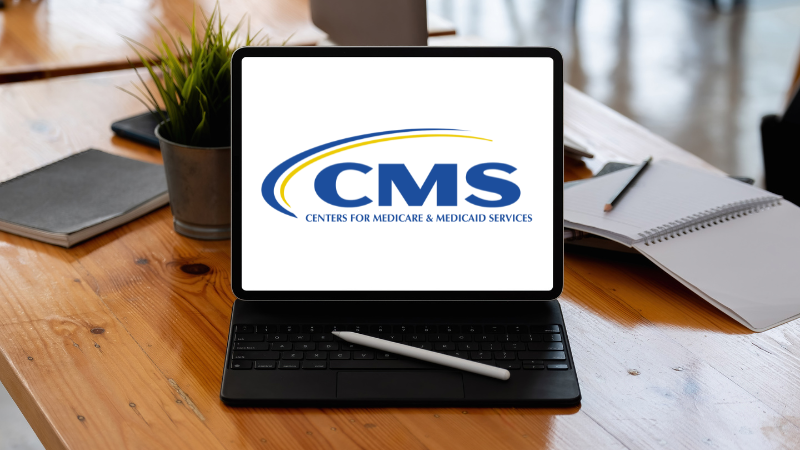October 4, 2023
Post-acute and long-term care (PALTC) communities have been struggling with staffing shortages since before the pandemic. That’s why AMDA has revived an initiative—More of a Good Thing: A Framework to Grow and Strengthen the PALTC Careforce—featuring innovative ideas, fresh looks at ways to increase recruitment and retention, collaborations, and the involvement of interdisciplinary leaders and other stakeholders. AMDA initially kicked off the effort last year, and now—with generous support from the Jewish Healthcare Foundation, The John A. Hartford Foundation, and the Foundation for PALTC Medicine—the initiative moves into phase two, marked by a new, exciting, and interactive series of virtual roundtable discussions and leadership modules, and plans for a web-based library of tools and resources to help everyone move the needle on staffing solutions.
“We want to focus the roundtable discussions on the roles that medical directors and other leaders can play in staff retention and recruitment,” said Erin O’Brien, MA, RN, director of clinical affairs and education at AMDA. “We learned during the pandemic that staff often trust engaged medical directors, who can help shape an organization’s culture. These leaders can profoundly impact how staff feel about their work and their organization.”
The first of the new series of monthly roundtables will be held on October 12 and features Nancy Zionts, MBA, chief operating officer and chief program officer at Jewish Healthcare Foundation, talking about the Teaching Nursing Home Collaborative. Ms. Zionts said, “The workforce issues were predictable because we weren’t paying attention, then COVID hit. We are revisiting the Teaching Nursing Home Collaborative, updating a 1980 model that showed we could help improve retention and recruitment of people going into long-term care careers by focusing on the workforce and giving them support and skills.” She and her colleagues conducted a two-year pilot in Pennsylvania matching schools and nursing homes “to help infuse into each other the realities of the skilled nursing world and what is necessary to support training, recruitment, and retention,” she noted.
The second roundtable is set for November 9 and will focus on A New Nursing Home-Value Based Business Model: A Collaboration to Strengthen Front-Line Staff Retention as the Foundation for High Performance. Ms. O’Brien urged people to register for and participate in these free roundtable discussions. “You can bring ideas or questions, put comments in the chat, or just listen,” she said. The programs will be just 45 minutes in length to accommodate busy schedules, and they will be recorded so people can listen or re-listen on their own time. At the same time, she stressed, “If you have a strategy that you would like to present at one of these roundtables, we would love to hear from you.” Reach out to her at eobrien@paltc.org.
The discussions will be led by JoAnne Reifsnyder, PhD, MSN, FAAN, professor of health services leadership and management at the University of Maryland School of Nursing and former executive vice president and chief nursing officer for Genesis HealthCare. The roundtables will feature individuals and organizations sharing their success stories and details of programs, partnerships, and initiatives they’ve found helpful in improving recruitment, retention, and engagement. “We will also get input on what has happened since we started More of a Good Thing,” said Dr. Reifsnyder. She stressed, “Diversity, equity, and inclusion will be a horizontal thread that cuts through everything we talk about.” In addition to the roundtables, Ms. O’Brien and her team will share tools and resources, along with a recorded archive of the roundtable discussions. They will also work to measure the impact of the strategies that PALTC leaders are using to improve careforce retention and engagement via surveys and focus groups.
“More of a Good Thing is encouraging in that it is about creating a new, better environment in which the careforce can thrive,” said Ms. Zionts. “COVID isn’t over, but people are ready to move on, and that may mean moving back. We want to give people tools to move forward and help create an environment where they want to work.” She also observed, “It’s important to bring together ideas and create models of what the careforce will look like. Our residents are too important not to do this.”
In addition to the roundtable sessions, Dr. Reifsnyder and others are working on a series of virtual leadership modules (which will be available to everyone) to help implement careforce retention and recruitment strategies. “Leadership is the ‘secret sauce’ everywhere. Where staffing is more stable and people are more engaged, it’s because of leadership practices,” Dr. Reifsnyder explained. “We will hone in on key leadership concepts and measure their effectiveness.”
Ms. O’Brien urges AMDA members and others to get engaged with More of a Good Thing. “The staffing crisis continues to be prevalent in most facilities, and it impacts patient care and well-being. We can address it with evidence-based strategies that are working. These are practical ideas, and if there is something practical we can do to change cultures and improve our careforce, we should pursue it.”


